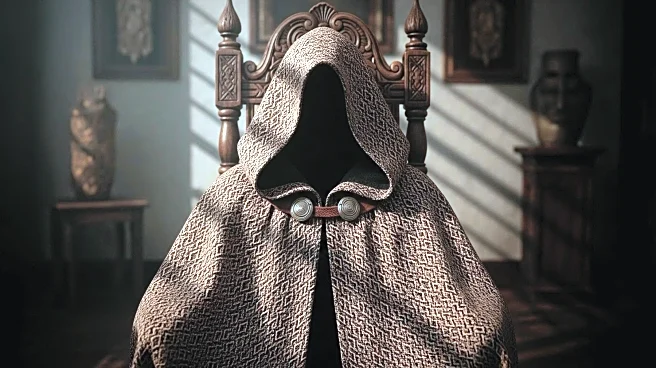What's Happening?
Ralph Ineson, an English actor known for his role in Assassin's Creed IV: Black Flag, has expressed his frustration on social media regarding Ubisoft's decision to reportedly cancel an Assassin's Creed game set during the American Civil War. The game was intended to feature a Black protagonist who escapes enslavement and later confronts racist groups like the Ku Klux Klan. The setting was deemed too controversial, leading to its cancellation early in development. Ineson, who has a prolific career with over 150 credits, reacted to the news with a blunt message, highlighting his disappointment. The game would have been the first in the series to tackle the Reconstruction era, following previous titles set in North America, such as Assassin's Creed III.
Why It's Important?
The cancellation of the Assassin's Creed game set during the American Civil War era raises significant questions about the gaming industry's approach to sensitive historical topics. By avoiding controversial settings, game developers may miss opportunities to engage players in meaningful discussions about history and social issues. The decision impacts Ubisoft's reputation and its willingness to explore diverse narratives. For the gaming community, it represents a loss of potential storytelling that could have provided a unique perspective on American history. The reaction from Ralph Ineson underscores the frustration felt by those who see value in addressing complex themes through interactive media.
What's Next?
Ubisoft's decision to cancel the game may lead to discussions within the gaming industry about the balance between creative storytelling and the potential backlash from controversial content. Stakeholders, including developers and players, might push for more inclusive narratives that tackle difficult subjects. Meanwhile, Ubisoft is reportedly working on a remake of Assassin's Creed IV: Black Flag, set for release in 2026, which may shift focus away from the canceled project. The company may also face pressure to reconsider its approach to historical settings and the representation of marginalized groups in future games.
Beyond the Headlines
The cancellation of the game highlights broader cultural and ethical considerations in the gaming industry. It raises questions about the role of video games in educating players about historical events and the responsibility of developers to handle sensitive topics with care. The decision reflects ongoing debates about representation and diversity in media, as well as the challenges of creating content that resonates with a global audience. As the industry evolves, developers may need to navigate these complexities to produce games that are both entertaining and thought-provoking.










